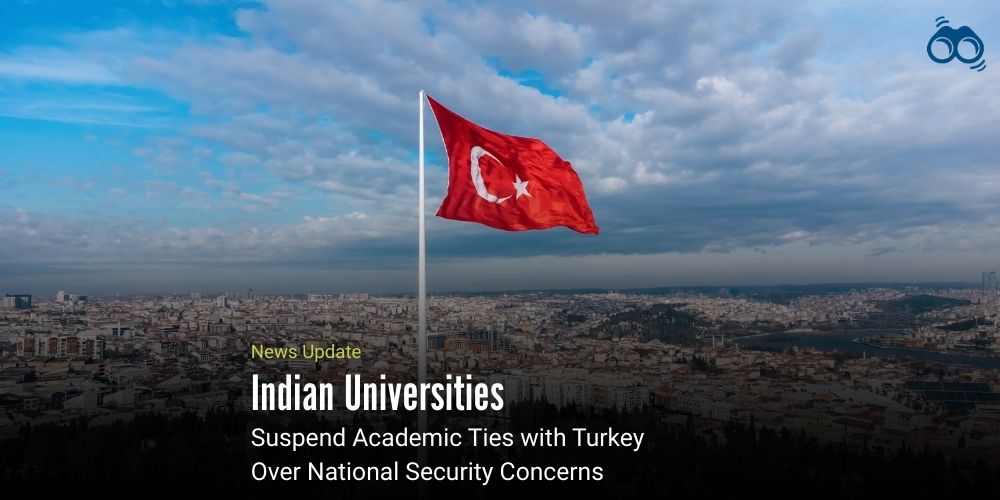Delhi University Joins Indian Institutions in Reviewing Ties with Turkey Amid Diplomatic Strains
JMI, JNU, and Kanpur University Suspend Academic Agreements with Turkey Due to Security Concerns
Patriotism is a cornerstone of national integrity, and safeguarding a country’s security interests must always take precedence. While academic collaborations can foster knowledge exchange and intellectual growth, they should be built upon mutual respect and aligned interests. When geopolitical tensions arise, universities and educational institutions must reassess their priorities to ensure that national security remains the top concern.
In light of growing geopolitical tensions, Jamia Millia Islamia (JMI) has decided to suspend its academic memorandum of understanding (MoU) with all educational institutions in Turkey, citing national security concerns. This decision underscores the importance of balancing academic aspirations with the broader need to protect national sovereignty. In an interview with India TV, Prof. Saima Saeed, Chief Public Relations Officer of Jamia Millia Islamia, confirmed that the university had cancelled all collaborations with Turkish educational institutions until further notice, emphasising Jamia's support for the Indian government.
Similarly, Kanpur University has also cancelled its MoU with Istanbul University in Turkey. Delhi University, on the other hand, is reviewing its international academic agreements. An official stated that any decisions will be made following a thorough review of all MoUs. On May 14, Jawaharlal Nehru University (JNU) suspended its academic MoU with Turkey’s Inonu University, also citing national security concerns. JNU Vice-Chancellor Prof. Santishree Dhulipudi Pandit explained that the MoU had been suspended due to the current security situation, stressing that JNU stands firmly with the nation and the Armed Forces, many of whom are proud JNU alumni.
These MoUs, originally designed to promote academic cooperation, research exchanges, and student mobility, were part of a broader effort by Indian universities to strengthen international collaboration. However, recent diplomatic tensions, particularly Turkey's growing defence ties with Pakistan, have raised security concerns, leading to these suspensions. In such times, universities must prioritize national security above all else, ensuring that academic partnerships align with the broader interests of the nation.
Editor's Note
The decision by Indian universities, including Jamia Millia Islamia, Kanpur University, and Jawaharlal Nehru University, to suspend academic collaborations with Turkey in light of national security concerns is a bold but necessary step in the current geopolitical climate. While academic exchange is vital for fostering international cooperation and intellectual growth, national security must always take precedence. Given the growing tensions and Turkey's defence ties with Pakistan, it’s understandable that these institutions have reassessed their priorities. However, this decision will have long-term implications for students on both sides. For Indian students, this might mean fewer opportunities for international exposure, research collaboration, and student mobility, potentially limiting their academic experience. On the other hand, Turkish students could also face setbacks in their academic and research pursuits, as these institutions were likely to benefit from the exchange of ideas and collaboration with Indian counterparts.
Skoobuzz argues that the long-term impact could be the creation of academic silos, where students miss opportunities to learn from each other. While security concerns are valid, universities should ensure that political tensions don’t undermine education’s role in fostering global understanding. A balanced approach should allow academic exchange to continue while prioritising national security.














0 Comments (Please Login To Continue)